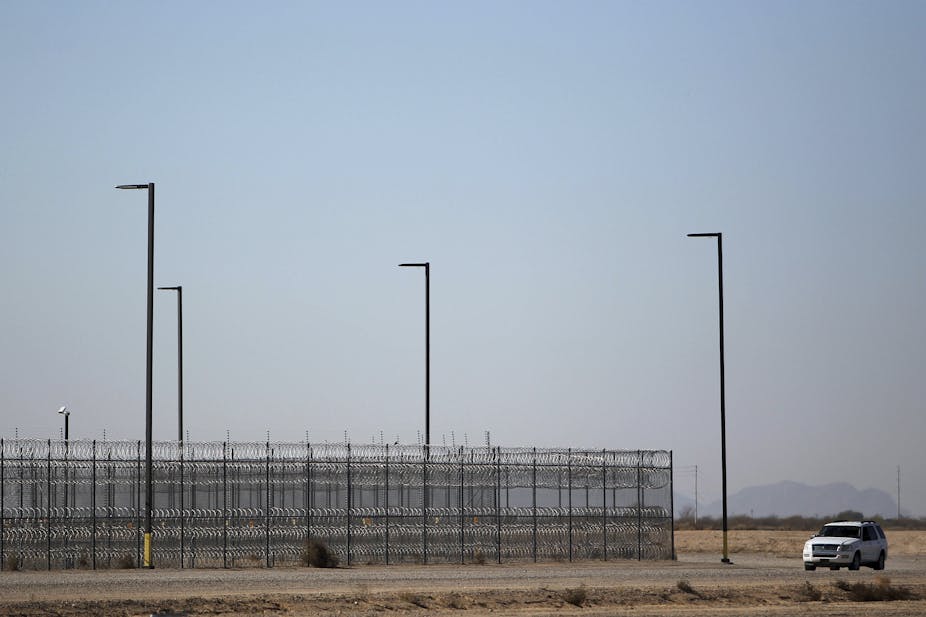Should we run the government like a business?
Donald Trump seems to think so. During his campaign for president, Trump returned again and again to his supposed success as a businessman and promised government programs “under budget and ahead of schedule.” His hotel in Washington would be “a metaphor for what we can accomplish for this country.”
The qualities Trump sees in himself are what he seems have been looking for in his Cabinet. His nominees for the State, Treasury and Commerce departments are successful businessmen with no previous government experience. Education Secretary Betsy DeVos and Transportation Secretary Elaine Chao are both heirs to business fortunes.
Trump is not alone in this approach. George W. Bush touted his Harvard MBA. Six decades ago, Dwight Eisenhower’s Cabinet was described as “eight millionaires and a plumber.”
Thatcher started the craze
If appointing businesspeople to run government is a path to efficiency, as Trump believes, then privatizing governmental functions entirely should bring even greater budget savings and improvements in services.
Ever since Margaret Thatcher closed a budget gap, brought on by her promised tax cuts, with the privatization of British Telecom, governments in rich and poor countries have financed tax cuts, wars and ordinary expenditures through one-time sales of assets. Following Thatcher’s lead, these assets have been sold at below-market prices, leading to quick and dramatic gains in their stock prices and creating the illusion that the new private managers are more capable and efficient than their governmental predecessors.
I have studied how governments respond to economic and geopolitical decline and found that before Thatcher popularized privatization, the most common response during crises was to increase governmental power and control rather than cut taxes and government services.
Privatization creates new interests and divides authority, making it harder to develop and implement an overall strategy to rebuild a nation’s power and resources.
For example, President Bill Clinton sold off the federally owned and operated United States Enrichment Corporation, which was created to buy and reprocess plutonium from decommissioned Soviet nuclear weapons. The goal was to remove weapons-grade plutonium from the former Soviet Union, where it was vulnerable to theft or could be used in a new arms race. However, the privatized USEC halted purchases of plutonium whenever the price for nuclear fuel dropped because the new private owners prioritized profit over safeguarding and reducing plutonium stores. The government-owned USEC, which did not seek to make money, could place national security above private profit while a firm answerable to private investors had priorities other than their nation’s security.
Privatization often makes worse rather than solves the problems that the once-public agency was created to address. Indeed, because the exclusive focus of public agencies is problem-solving rather than profit-making, they are often more efficient. Costs per enrollee under the government Medicare program have risen more slowly since 1985 than they have for private insurers. Nevertheless the George W. Bush administration created incentives for private insurers to enroll Medicare recipients. Those Medicare Advantage plans now charge the government more per recipient than the Medicare average. They reap high profit margins because the insurers cherry-pick relatively healthy seniors for their plans, or, in some cases, overbill the government.
Trend is likely to grow
We can expect more efforts to privatize government functions and facilities under Trump.
When he won the election, shares in corporations that run private prisons were the biggest gainers in the stock market. This reflects the expectation that he will increase the use of private prisons to hold those captured in immigration raids. In contrast, the Obama administration announced plans to phase out the use of private prisons for federal prisoners and to detain immigrants.
One reason for not using private prisons is their terrible record on safety. They are far more likely to endure riots than public prisons, and have a higher rate of prisoner escapes and inmate assaults on guards and on fellow inmates than do public prisons. Even as private prisons fail to meet the minimum requirements of preventing escapes and keeping prisoners alive, private firms do not save the federal or state governments money over the costs of safer public prisons.
How should we evaluate proposals to privatize government functions?
First, we shouldn’t assume that lower costs means more efficiency. It will be easy to develop a replacement for the Affordable Care Act that is cheaper. Just provide fewer benefits or make the insured pay more out of pocket or in premiums. That is not more efficient, but just a less comprehensive program. The government would save money, but patients get less while paying more.
Second, not everything can be reduced to a price. We often hear that cuts in military spending might result in less security. We should realize that cheaper prisons can be more dangerous. Less spending on education could yield less educated students.
Finally, we need to recognize that people who have spent their careers working in the private sector, where the single measure of success is the rate of profit, might not be capable of running an organization that measures success in terms of human well-being, public health or the beauty and sustainability of our environment.
Because government often must satisfy multiple constituencies and address complex and interlocking problems simultaneously, leaders must be capable of recognizing interactions that lead to unintended consequences. They also need to acknowledge honestly that meeting one goal or satisfying one constituency requires others to pay a price. Those skills can be learned in business, but usually not in enterprises devoted to speculation and quick returns. Skill in running public agencies most often is learned by working in government.

